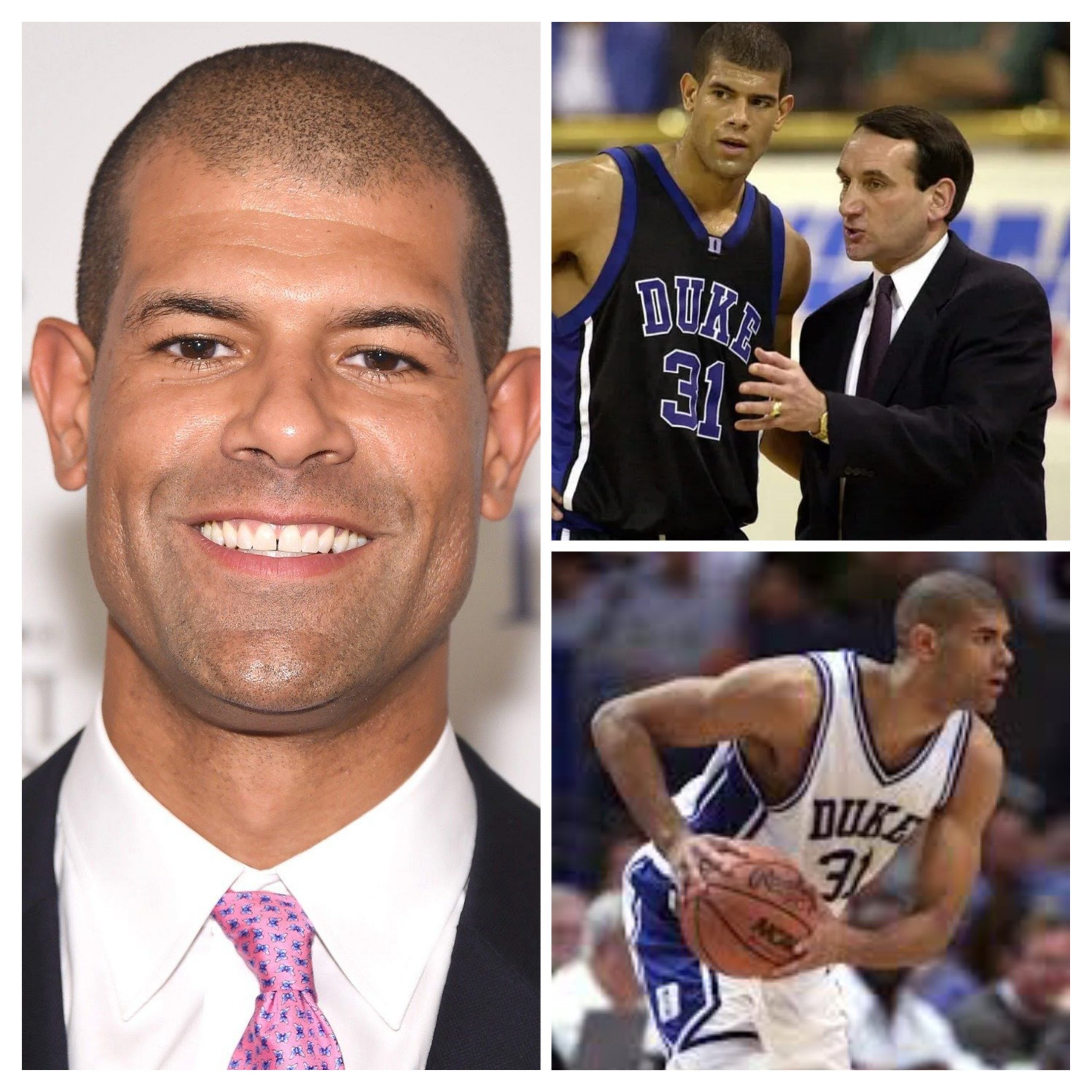🏀 He Nearly Quit Duke… Then Became the Heart of a Championship: The Grit Behind Shane Battier’s Legacy
He was never the most athletic. He didn’t talk trash. He didn’t fly through the air like Zion or hit logo threes like JJ. But Shane Battier’s journey at Duke is one of the greatest stories never told — a quiet battle of self-doubt, leadership, and legacy. Before he held a national championship trophy, he almost walked away from it all. From frustrated freshman to Final Four MVP, Battier became the heart and soul of Coach K’s 2001 title team — and proved that true greatness isn’t always loud. Sometimes, it’s the grit you never see.
The Weight of Expectations at Duke
When Shane Battier committed to Duke in 1997, he wasn’t just another top recruit — he was the perfect “Duke guy.” A 4.0 student. Defensive ace. Polished speaker. Coach K described him as “the model student-athlete.” But with that label came enormous pressure — both on and off the court.
Battier arrived in Durham from Detroit Country Day, a private school known for discipline and fundamentals. But the moment he stepped into Cameron Indoor Stadium, he felt it: the intensity, the legacy, the weight of names like Grant Hill and Christian Laettner. Suddenly, being smart and well-spoken wasn’t enough.
“I felt like I didn’t belong,” Battier later admitted. “I wasn’t strong enough, fast enough — and honestly, I was terrified of letting Coach K down.”
The Early Struggles — and Almost Walking Away

Battier’s freshman year was far from smooth. He came off the bench, often looked overwhelmed, and was visibly frustrated during games. Fans noticed. Analysts questioned his motor. Whispers grew louder: “Was Duke wrong about this one?”
“I called my parents crying,” Battier recalled years later. “I told them I didn’t think I could do this. I wanted to leave.”
He stayed. Barely. But instead of running from the grind, Battier leaned into it.
The Turning Point: Becoming a Student of the Game
Battier wasn’t just determined to improve — he became obsessed. He watched hours of film each night, not of himself, but of elite defenders. He learned the footwork of Scottie Pippen. The angles of Dennis Rodman. He asked Coach K to assign him the toughest player to guard in every practice.
“He became a surgeon with defense,” Coach K once said. “He didn’t block shots for highlight reels — he blocked shots that saved games. He took charges that changed momentum. He did the dirty work — and loved it.”
By his sophomore year, Battier was a starter. By junior year, he was the team’s vocal leader. By senior year? He was rewriting the book on what it meant to be a complete player.
The Championship Season: 2000–01

The 2000–01 Duke team wasn’t short on stars. Jason “Jay” Williams. Mike Dunleavy Jr. Carlos Boozer. Chris Duhon. But it was Shane Battier who made it all work. He was the glue — the veteran who calmed the storms, locked down opponents, and hit the big shots when it mattered.
That season, Battier averaged:

19.9 points
7.3 rebounds
2.1 blocks
41.9% from three-point range
He swept every major award — the Naismith, Wooden, and AP Player of the Year. But most importantly, he led Duke to the national championship, avenging back-to-back Final Four heartbreaks in 1999 and 2000.
In the title game against Arizona, Battier poured in 18 points, grabbed 11 boards, and held All-American Richard Jefferson to just 7 points. He didn’t just win — he willed Duke to glory.
The Leader Everyone Respected
Battier’s leadership wasn’t loud or flashy. He wasn’t the guy screaming in huddles or flexing after a dunk. He led with consistency, humility, and relentless effort.
Coach K called him “the greatest leader I ever coached.”
Teammates said he set the tone in practice every day. Media respected him as a mature, articulate voice. Fans loved him for being the guy who never needed to be the star, but always played like one when it counted.
Beyond Duke: Carrying the Legacy to the NBA

Battier went on to enjoy a successful 13-year NBA career, most notably winning two NBA titles with the Miami Heat alongside LeBron James and Dwyane Wade. But even on the biggest stage, he played the same way: defense first, ego last.
LeBron once said, “Shane Battier is the kind of player every team needs but not every team deserves.”
Battier also became known for his philanthropy, sharp basketball mind, and public speaking. After retiring, he joined the Miami Heat’s front office and created the Battier Take Charge Foundation to help underserved youth — just another example of his selfless nature.
Legacy: The Grit You Never See
In a program filled with icons, Shane Battier’s legacy is different. He wasn’t the most talented player Duke ever had — but he might be the most respected. His story reminds fans that greatness isn’t always about highlights or headlines.
Sometimes, it’s about showing up early. Studying late. Taking the charge. Saying the hard thing in the locker room. And refusing to quit, even when everything tells you to walk away.
Battier could’ve left. He didn’t. He stayed — and became the beating heart of a championship team.





























